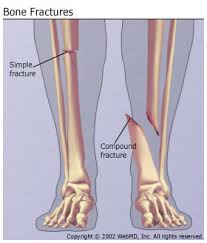fracture
英 [ˈfræk.tʃər]
美 [ˈfræk.tʃɚ]
- n. 破裂,断裂;[外科] 骨折
- vi. 破裂;折断
- vt. 使破裂
使用频率:

记忆方法
记忆单词“fracture”的方法是将其与“fact”结合,想象“fact”(事实)被“fraction”(一小部分或碎片)分裂或破坏,形成“fracture”(骨折或断裂)。这样的联想可以帮助你记住单词的含义。
以上内容由AI生成, 仅供参考和借鉴
中文词源
fracture 骨折,断裂
来自PIE*bhreg, 分开,破开,词源同break, fragment, fraction.用于医学名词。
英语词源
- fracture (n.)
- early 15c., "a breaking of a bone," from Middle French fracture (14c.), from Latin fractura "a breach, break, cleft," from fractus, past participle of frangere "to break" (see fraction). As "a broken surface" from 1794.
- fracture (v.)
- "cause a fracture in" (transitive), 1610s (implied in fractured), from fracture (n.). Intransitive meaning "become fractured" is from 1830. Related: Fracturing.
权威例句
- 1. He suffered a hairline fracture of the right index finger.
- 他右手食指骨裂。
- 2. A doctor can reduce a fracture or dislocation.
- 医生能使骨折或脱臼复位.
- 3. Earthquakes happen when stresses in rock are suddenly released as the rocks fracture.
- 当岩石碎裂时其承受的压力突然释放出来,地震就发生了。
- 4. We may continue the traction up to three weeks, until the fracture is healed.
- 我们可以继续牵引三周, 直到骨折痊愈为止.
- 5. At least one-third of all women over ninety have sustained a hip fracture.
- 超过90岁的所有女性中至少有1/3已经出现髋骨骨折。
